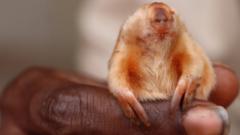– Lancetstudy solidifies evidence of long-term viral persistence after COVID; demonstrates urgency of sustained research into the chronic health consequences of the virus
MASSACHUSETTS, USA – Research published in Lancet Infectious Diseases and supported by PolyBio Research Foundation provides the strongest evidence yet that the COVID virus can persist for months or years after infection. The findings, published by a UC San Francisco/Harvard Medical School team, found that proteins created by the virus were still present for up to 14 months in a quarter of people tested. This demonstrates SARS-CoV-2 viral persistence as an urgent area of research underlying a breadth of chronic disease after COVID.
“The fact that every new SARS-CoV-2 infection has the potential to become chronic is perhaps the single most concerning aspect of this virus,” says Dr Amy Proal, President of PolyBio. “We have compelling data that viral persistence is much more common than recognized which could have major health implications.”
Solid evidence of persistent infection
The researchers analyzed blood samples from 171 people who had been infected with the virus. Using a novel ultra-sensitive blood test, they found that proteins from the virus were still present up to one year after infection in up to 25% of people. These findings greatly bolster evidence that the coronavirus can linger in tissue and organs, even after recovery from acute infection.
The likelihood of detecting the COVID proteins indicative of persistent virus was about twice as high among those who were hospitalized for COVID as it was for those who were not. It was also higher for those who were not hospitalized but reported being sicker.
The researchers note that viral proteins identified in the study could not have been a result of the COVID vaccine, since nearly all study participants had not received the shots prior to the blood collection. In addition, proteins were only rarely found in banked blood obtained from over 200 people before the pandemic, confirming the accuracy of the blood test used in the research.
“Finding COVID-19 proteins floating in the bloodstream for more than a year following initial infection was a surprise to most of us and is the product of new molecular tools. This finding now firmly informs the next step in our research agenda — is persistence of the SARS-CoV-2 virus responsible for causing people’s current symptoms in Long COVID or medical events they may have in the future?” says Jeffrey N. Martin, head of the division of Clinical Epidemiology at University of California, San Francisco who co-led the study.
Martin is part of a multi-disciplinary collaboration behind the findings. The blood test used to find viral proteins was created by Harvard Medical School’s David Walt – founder of biotech companies that have transformed technologies across biomedical research. The blood samples were provided by volunteers in the UCSF Long-term Impact of Infection with Novel Coronavirus (LIINC) study. The UCSF team contains experts who helped make HIV/AIDS a treatable disease and pivoted their infrastructure into Long COVID via LIINC in April of 2020.
The UCSF team is part of PolyBio’s LongCovid Research Consortium – a privately funded global collaboration of scientists working rapidly to document SARS-CoV-2 persistence in Long COVID, with data channeled into clinical trials. In a seminal Nature paper, the Consortium delineated a roadmap for the study of SARS-CoV-2 persistence that is being executed by dozens of international teams.
However, with an estimated 18 million adults and 5.8 million children suffering from Long COVID, government investment is also needed. SARS-CoV-2 has even been found in the lymph nodes of children months after COVID, suggesting persistent infection can begin early in life.
“COVID persistence could contribute to Long COVID in both adults and children,” says Michael Peluso, MD, principal investigator of LIINC and an infectious disease researcher in the UCSF School of Medicine. “We must rapidly keep studying that possibility.”
PolyBio
PolyBio Research Foundation is a 501(c)3 transforming how complex chronic conditions like Long COVID are studied, diagnosed, and treated. PolyBio conceptualizes research projects that identify root cause drivers of chronic conditions and builds collaborative teams to make the projects a reality. PolyBio is supported by numerous donors including Kanro – a philanthropic fund to support open-source scientific research established by Vitalik Buterin, creator of Ethereum.
Source: PolyBio Research Foundation
The post COVID-19 virus can persist in the body more than a year after infection appeared first on Caribbean News Global.

